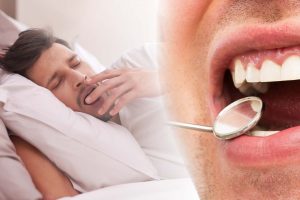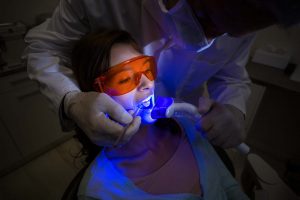Bad breath, or halitosis, is a common and embarrassing problem that affects many people. In fact, almost everyone can experience it, especially after eating foods that contain garlic, onions, or spicy foods. However, there is also a large number of people who suffer from chronic bad breath. If you are one of those individuals who can’t seem to get rid of it then you should be aware of some of the most common causes. In this article, we will explore six common causes of bad breath and what can be done to prevent and treat it.
1. Poor Oral Hygiene
Poor hygiene is one of the most common causes. When you don’t clean your mouth well, food particles accumulate between your teeth that can cause unpleasant odors. In addition, bacteria from plaque and tartar buildup on your teeth and gums which also cause bad breath. Regular brushing and flossing, and regular dental cleanings can help remove food particles and plaque, preventing foul odors.
Failing to clean the tongue can also lead to bad breath, as bacteria and fungi can accumulate on its surface. Brushing your tongue for a few seconds each time you brush your teeth can get rid of the tongue of bacteria living in the biofilm coating your tongue, freshening your breath. Therefore, it is important to remember to brush your tongue since only brushing your teeth does not remove all the bacteria in your mouth.
2. Gum Disease
Gum disease, also known as periodontal disease, is another of the most common causes. It occurs when plaque, a sticky film of bacteria, builds up on the teeth and gums. This can cause inflammation, bleeding, and infection, all of which can lead to bad breath.
The foul smell is produced by the damaging bacteria (anaerobes) that cause periodontitis. Dentists often call this odor “perio-breath.” The way to avoid this is by keeping up with your regular dental cleanings. However, if you do have periodontal disease, your dentist may suggest a deep cleaning involving two procedures called scaling and root planing. In addition, more frequent cleanings (every three months instead of twice a year) can help you get the gum disease under control.
The best way to prevent gum disease, however, is by practicing good oral hygiene, such as brushing and flossing regularly with fluoride toothpaste and seeing your dentist for regular professional dental cleanings.
3. Foods and Drinks Causing Bad Breath
Certain foods and drinks can also cause bad breath. Foods such as garlic and onions contain strong-smelling compounds, such as sulfur, that can linger in the mouth for hours after eating. Coffee and alcoholic beverages can also cause it.
The best way to prevent this type of bad breath is to avoid consuming these types of foods and drinks. However, since garlic and onions have significant health benefits, you should eat them and after your meal brush your teeth, drink a glass of water and eat fresh fruit and vegetables like grapes, pears, apples, or parsley which contain natural enzymes that break down sulfur compounds.
4. Dry Mouth
Dry mouth or cottonmouth, also known as xerostomia, can cause bad breath. This is because when your mouth does not produce enough saliva to remove food particles from your mouth. As a result, these particles remain in your mouth and rot to provide food for bacteria which increase and cause bad breath.
To prevent dry mouth, it is important to stay hydrated by drinking plenty of water and avoiding sugary and caffeinated drinks. Chewing sugar-free gum can also help stimulate saliva production.
5. Tobacco Products
Using tobacco products, such as cigarettes and cigars, can also cause bad breath. The smoke and chemicals produced by smoking can linger in the mouth causing bad breath. What’s more, smoking can cause dry mouth and make your breath smell even worse. Quitting smoking is the best way to prevent this type of bad breath.
6. Medications
Some medications are also another reason, we can have foul-smelling breath. Some medications, such as antihistamines, sedatives, diuretics, and decongestants, can cause dry mouth, which can lead to bad breath. Using inhalers can also result in foul-smelling breath for some people. If you are being treated with chemotherapy, you may also experience bad breath because some of the medicines used can thin the lining of your mouth which increases the chances of infection and mouth sores.
If you are taking medications and notice that you have bad breath, it is important to talk to your doctor. In the meantime, brushing your teeth more often and using non-alcohol mouthwash can help minimize your bad breath.
Last Word
Bad breath can be an embarrassing and uncomfortable problem, but understanding the causes can help you prevent and treat it. Practicing good oral hygiene, avoiding smoking, and drinking plenty of water can help prevent it. If you are taking medications and notice that you have bad breath, it is important to talk to your doctor.
If you are concerned about bad breath, then contact our dentist at Langley Dental Center. Our dentists can perform various oral exams as part of our preventative dentistry routine. With exams, we can evaluate the condition of your teeth and gums to detect any subtle changes or potential problems that may cause your bad breath. X-rays are also used for proper diagnosis, allowing us to determine if any problems exist that are not immediate to us during a regular oral exam.
Our dentists are genuinely concerned about every patient’s dental health and well-being. This makes them one of the favorite dentists for many in Langley, BC. Call us at 604-455-6247 or contact us online to book your appointment today!






